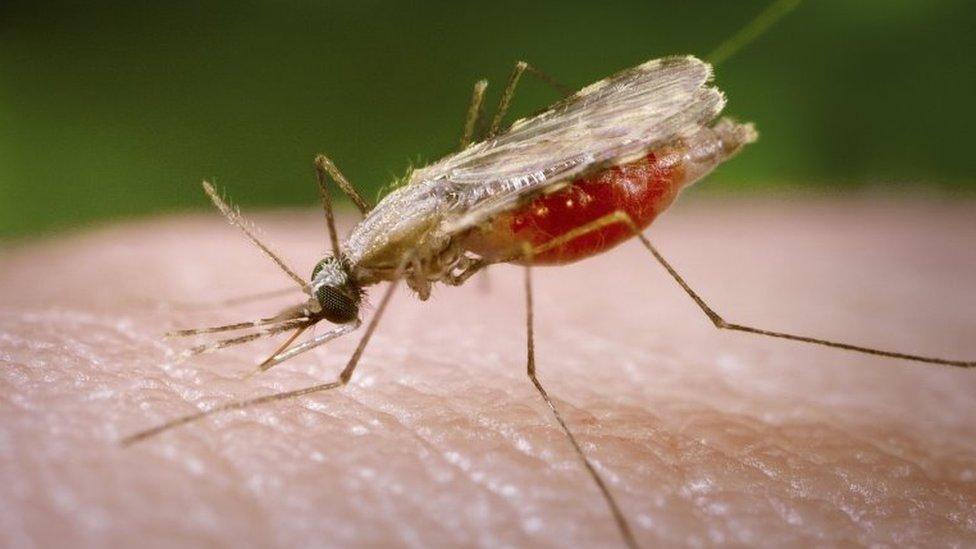Malaria: Ghana first country to approve Oxford University vaccine
- Published
- comments
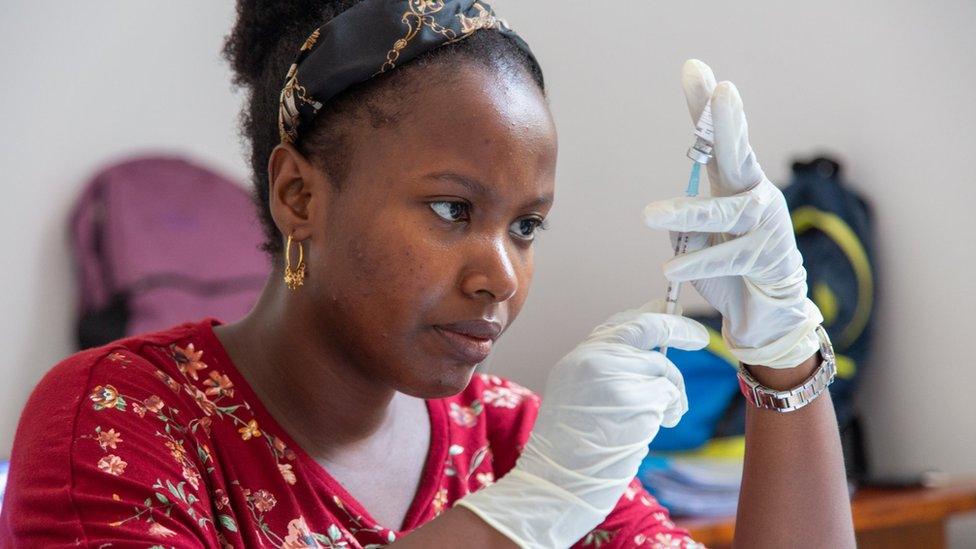
Ghana is the first country in the world to approve a malaria vaccine from Oxford University.
The vaccine - which is called R21 - has been shown in early studies to be highly effective against the disease.
Ghana has approved the vaccine based on final trial data on the vaccine's safety and effectiveness which hasn't yet been made public.
The World Health Organization is also considering approving the vaccine.
The vaccine has been described as a "world-changer" by the scientists who developed it.
What is malaria?
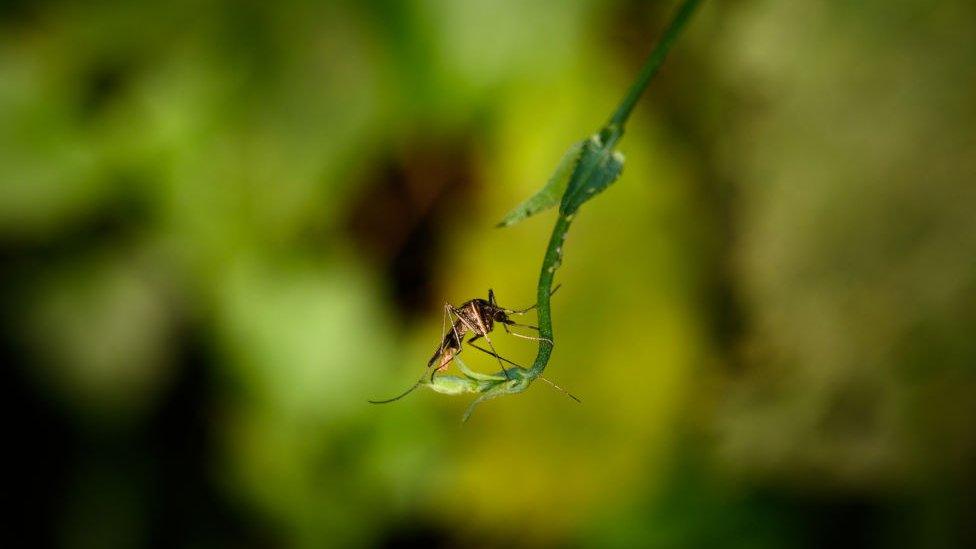
Malaria is spread through the bites of female Anopheles mosquitoes
Malaria is a disease caused by a parasite spread by a particular kind of mosquito - the Anopheles.
According to the World Health Organisation (WHO), 95% of all cases of malaria were found in Africa, though cases are also often found in South-East Asia, the Eastern Mediterranean and in the Americas.
Malaria kills about 620,000 people each year, and it is particularly dangerous for children aged five and under.
Mild symptoms are fever, chills and headache. Severe symptoms include fatigue, confusion, and difficulty breathing.
Current methods to reduce malaria include mosquito nets at night, protective clothing and insect repellent - which are all ways to stop being bitten by mosquitos.
But scientists believe a vaccine that stops a malaria infection would reduce cases hugely worldwide.
What is the Oxford University malaria vaccine?
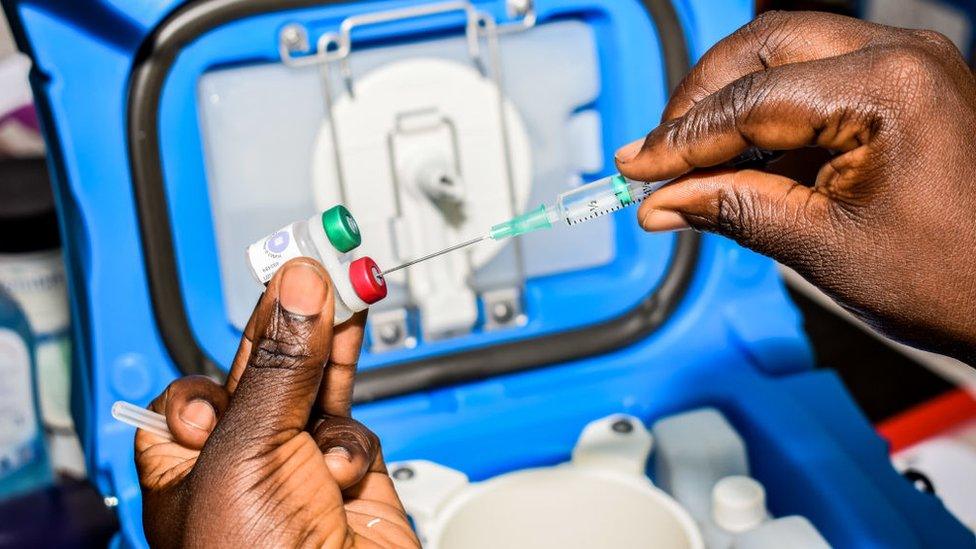
Scientists from the University of Oxford, the same university that created one of the vaccines that helped to prevent coronavirus, revealed some data of their R21 vaccine in September 2022.
The data showed that it was able to prevent up to 80% of infections in a small trial of 450 children.
In 2021 the WHO recommended another malaria vaccine created by pharmaceutical company GlaxoSmithKline (GSK), which has committed to produce up to 15 million doses of Mosquirix every year through 2028.
But this is under the roughly 100 million doses a year of the four-dose vaccine the WHO says is needed long-term to cover around 25 million children.
The Oxford vaccine in contrast has made a deal with the Serum Institute of India, the world's largest manufacturer of vaccines, to produce up to 200 million doses annually.
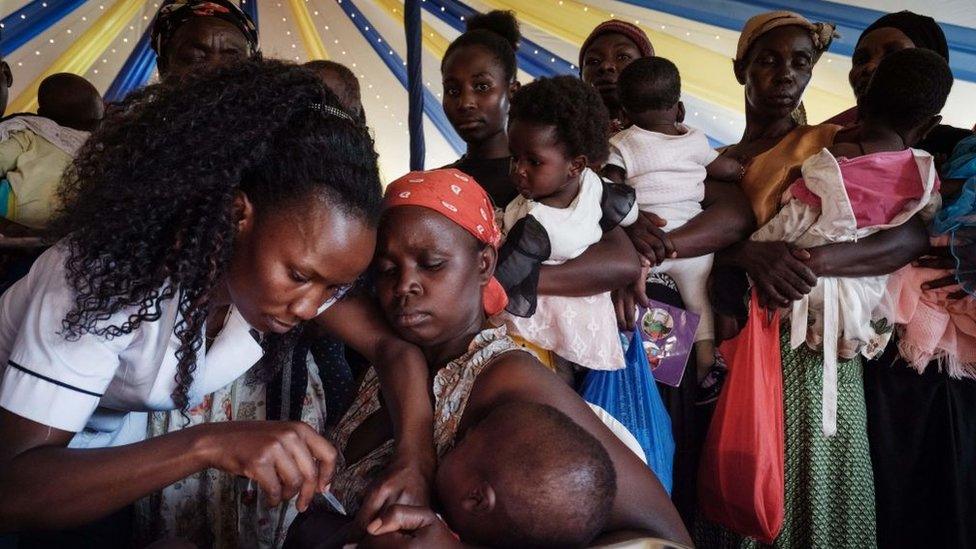
Widespread use of the vaccine will depend on an ongoing clinical trial in Burkina Faso, Kenya, Mali and Tanzania involving 4,800 children
Widespread use of the vaccine will depend on an ongoing clinical trial in Burkina Faso, Kenya, Mali and Tanzania involving 4,800 children.
Although this data has not been made public yet it has been shared with some government bodies in Africa and scientists.
Ghana's Food and Drugs Authority, which has seen the data, has approved the vaccine's use in children aged between five months to three years old.
Other African countries are also studying the data, along with the World Health Organization.
Adar Poonawalla, CEO of the Serum Institute, said that Ghana being the first country to approve the vaccine, represents a "significant milestone in our efforts to combat malaria around the world".
- Published25 April 2024
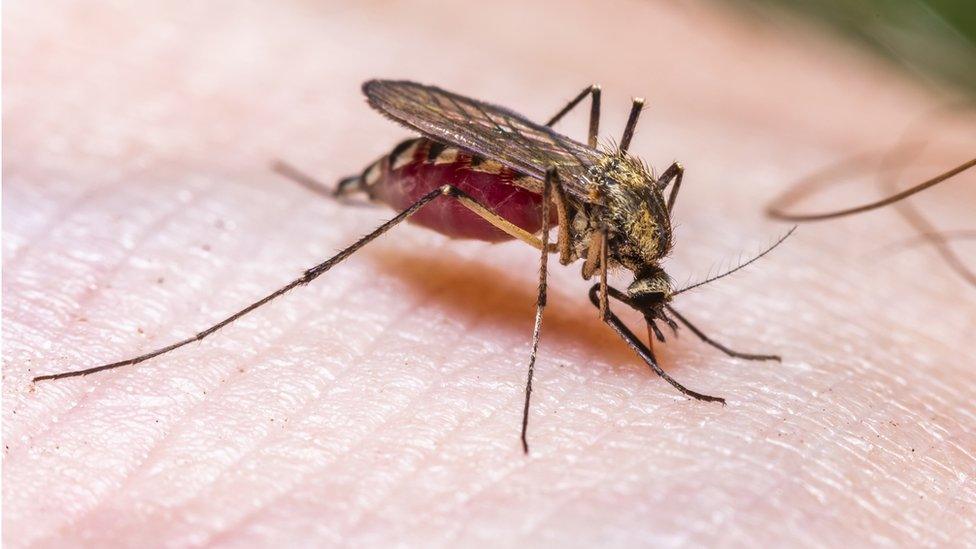
- Published26 May 2021
